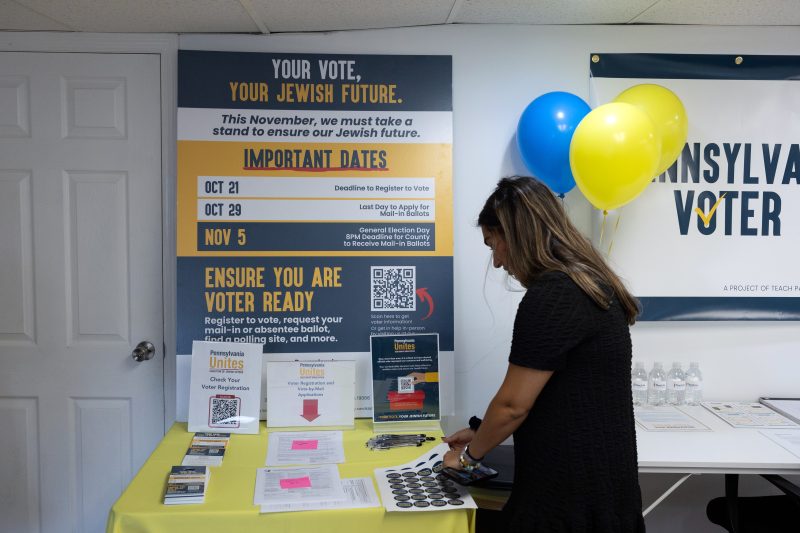In a bid to attract Jewish voters amidst the ongoing Israel-Gaza conflict, both Vice President Kamala Harris and former President Donald Trump are making strategic moves to sway this pivotal group. The recent escalation of violence in the Middle East has sparked concerns among Jewish Americans, who are closely observing the response from political leaders on both sides of the aisle.
Vice President Harris, a member of the Democratic party, has condemned the violence in the region and expressed support for a ceasefire to protect innocent lives. Her stance on the conflict aligns with the traditional Democratic position of advocating for a two-state solution to the Israeli-Palestinian conflict. Harris’s measured approach seeks to balance support for Israel’s security while also acknowledging the rights and aspirations of the Palestinian people.
Former President Trump, on the other hand, has voiced unwavering support for Israel and its right to defend itself against rocket attacks from Hamas. Throughout his presidency, Trump strengthened the U.S.-Israel relationship by relocating the American embassy to Jerusalem and brokering peace agreements between Israel and several Arab nations. Trump’s unequivocal backing of Israel resonates with many Jewish voters who prioritize strong support for the Jewish state.
The Israel-Gaza conflict has highlighted the complex dynamics at play within the Jewish American community. While many Jewish voters hold strong ties to Israel and prioritize its security, there is also a significant segment that harbors concerns about the plight of Palestinians and advocates for a more balanced U.S. foreign policy approach to the region.
As Harris and Trump vie for support from Jewish voters, they must navigate these nuanced perspectives and demonstrate a nuanced understanding of the complexities surrounding the Israel-Gaza conflict. Both candidates are keenly aware of the influence Jewish voters wield in key battleground states and are tailoring their messaging to appeal to this diverse constituency.
Ultimately, the response to the Israel-Gaza conflict may prove to be a defining issue for Jewish voters in the upcoming elections. As Vice President Harris and former President Trump compete for their support, the candidates’ handling of this sensitive issue will play a crucial role in shaping the preferences of Jewish Americans at the polls. The battle for Jewish voters amid the Israel-Gaza conflict underscores the significance of foreign policy in electoral politics and the nuanced considerations that come into play when addressing complex geopolitical challenges.






























